The Best Campervans to Rent in 2026: Comparison, Costs and Tips
- Chris Wallace-Tarry

- Apr 2, 2024
- 17 min read
Updated: Dec 31, 2025
The variety of available campervans to rent and the convenience of the process makes renting a very attractive option. If you’re drawn to the van life but haven’t yet committed to owning your own, renting a campervan for your next trip can be an excellent low-investment option. There are some important things to consider, and a variety of ways to find your ideal van. This article will help you with your planning, your search, and give you tips to make your campervan holiday a success.
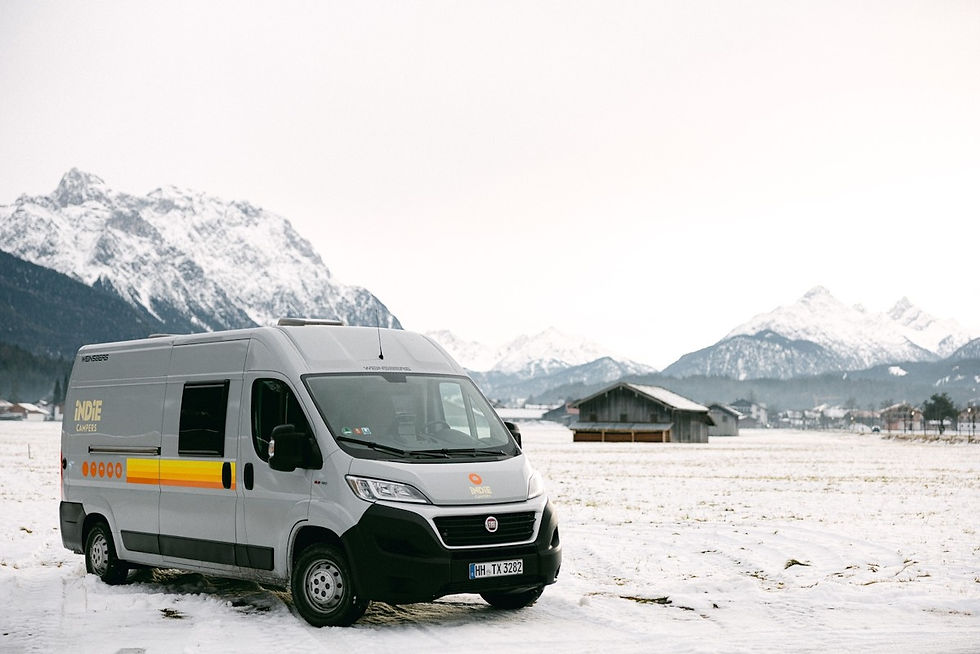
Shane, the founder of The Van Conversion, is a campervan professional and NCC-certified electrical installer. Since 2020, he’s lived on the road full-time, completing several van builds along the way. He’s the author of Roaming Home and the creator of The Van Conversion Course, which have helped thousands build their own vans. Shane also writes The Van Conversion Newsletter, where he shares hands-on tips and practical insights. He’s passionate about empowering others to make their vanlife dreams reality.
This post contains affiliate links, which means that if you click a product link and buy anything from the merchant (Amazon, eBay, etc.) we will receive a commission fee. The price you pay remains the same, affiliate link or not. By using these links, you are helping us to continue writing free educational content. To understand our policies on content, affiliate commissions, and liability, please review our Terms of Use.
Did you know you can get a free electrical wiring diagram by signing up for The Van Conversion Newsletter?
Index
The Benefits of Renting a Campervan
Renting a Campervan vs. Buying a Campervan
If you dream of owning your own campervan but haven’t yet made the commitment, renting offers some attractive benefits. Renting avoids the upfront cost of buying a campervan outright, which can be very high. Additionally, a campervan incurs the same regular costs as any other vehicle. Insurance, tax, storage, and maintenance are all regular expenses which don’t apply when renting. In general, a campervan, like a car, is an investment that costs money and loses value over time. Renting a campervan allows you to enjoy vanlife holidays without this commitment.
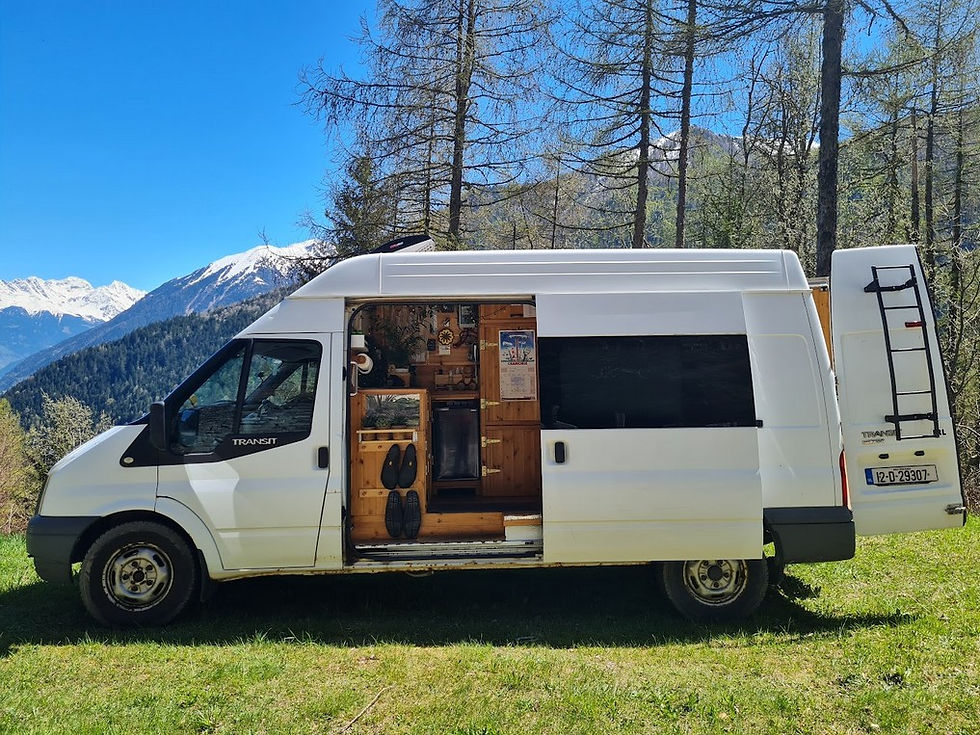
For those who are certain that they want to commit to owning their own campervan, renting is a brilliant form of preparatory research. You can experiment with spending time in any kind of campervan you can think of, allowing you to understand exactly what works for you. Think of each holiday as a trial run — after renting a handful of different campervans, you’ll know exactly what base vehicle and internal layout you like best. Armed with this knowledge, you’ll be able to commit to owning a campervan that you won’t later regret.
Finally, rental offers some benefits that owning can’t provide. Rental services allow you to pick up your camper at your holiday destination, avoiding long drives and their associated costs. Further, many services allow pickup and dropoff at different locations, giving you the flexibility to do an A-to-B road trip.
Renting a Campervan vs. Converting a Van Into a Camper
When considering whether to rent a campervan over building out your own, the same benefits listed above apply. Additionally, renting bypasses the process of building out the campervan in the first place. Converting a campervan is a long process that requires a variety of DIY skills and a lot of research. You might make mistakes which will need fixing, and there are many unforeseen pitfalls. Building out your own camper is a rewarding and essential part of the process for many, but it’s such a commitment that you need to be sure you’ll be happy with the result. RV rental allows you to live the lifestyle without commitment, meaning you can be sure of what you want if and when the time comes.
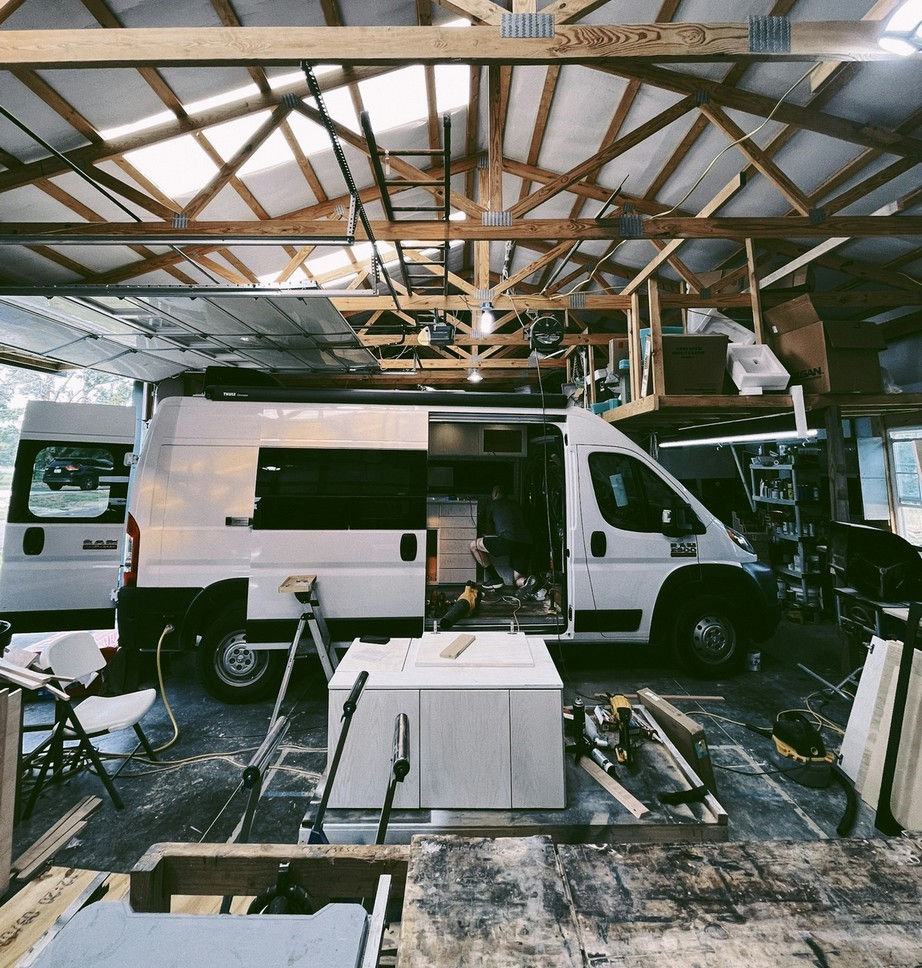
Choosing the Right Campervan for Your Road Trip
Campervans come in a huge range of base vehicles and internal configurations. The right campervan to rent for you will be decided by the length of your trip, the number of travellers, your destination, the style of your trip, your appetite for creature comforts, and your budget.
Size Matters: Finding the Perfect Fit for Your Campervan Rental
When exploring campervans to rent, the first question is that of size. Small vans offer the convenience of easy driving and parking, and won’t be victim to height restrictions at campsites and parking garages. Meanwhile, large vans are more comfortable, often allowing you to stand up inside and including such luxuries as fully-equipped kitchens and bigger beds.
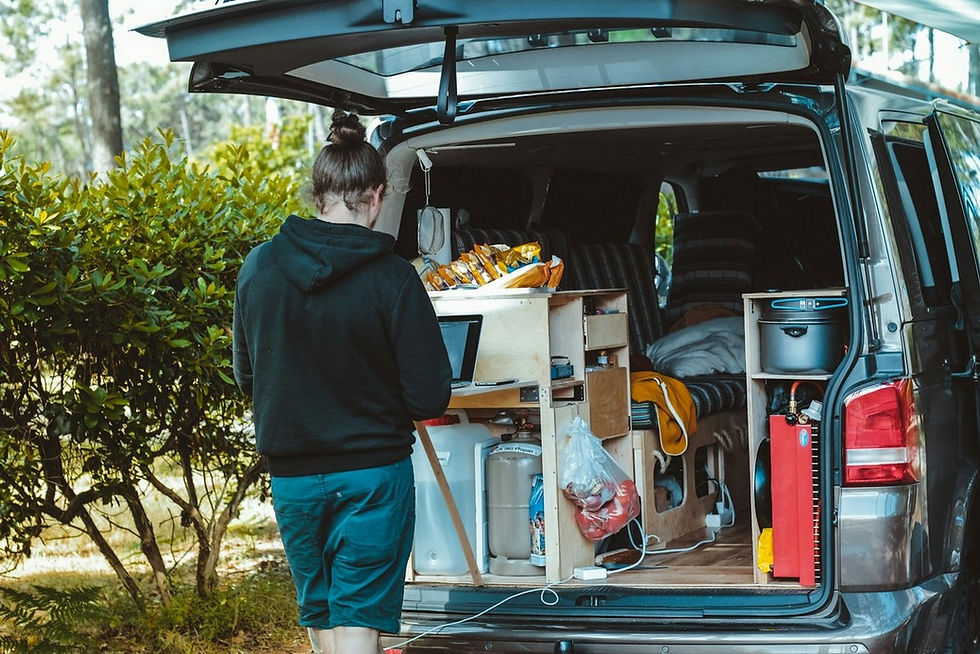
Trip Length
First, consider the length of your trip; a cramped space is much more agreeable when you’re only in it for a few days. Next, the number of people will be a deciding factor. Cramming 5 people and a dog into a tiny camper is often impractical.
Trip Destination and Style
The destination and style of your trip also changes things. Are you going somewhere warm and dry? A tiny camper can work just fine if you’ll be cooking and relaxing outside. Will you be spending a lot of time in towns and cities? If so, you might be doing a lot of eating out, and a small vehicle is much easier to park and manoeuvre through crowded streets.
Gear
Finally, you’ll need to think carefully about how much gear you’re bringing. Mountain bikes, surfboards, and ski gear all take up much more space than climbing equipment or a simple beach holiday wardrobe. If you’re not hot on storing your gear on the outside of your van, you’ll need the space to stash it inside.
Features to Look for When Renting a Campervan
Once you’ve chosen your base vehicle, you can start filtering based on specific features.

Kitchen
Basic amenities like the kitchen, bathroom, and sleeping setup determine the interior layout of a campervan. Do you need a fully integrated, fully equipped kitchen? If you’ll be mostly cooking outside, a pull-out setup might suffice and allow you to look at smaller vans. A fridge allows for storage of more food, but uses energy and takes up space. Might a portable coolbox suffice?
Toilets and Sleeping
Interior toilets allow for privacy and comfort, but take up space and require emptying. An inside shower is a wonderful luxury, but like these other features, adds expense. Couples will want at least a one-and-a-half sized bed, and families will need sleeping arrangements that accommodate everyone. Ease of setup of fold-out beds is a worthy consideration, as this is something you’ll need to do twice a day.
Electronics and Appliances
Further to these concerns, the electrical supply and appliances that are included in your RV rental will help narrow things down. Do you need a big leisure battery with lots of sockets? What appliances would you like to use on your trip? Some motorhomes to rent include televisions and allow you to power hair dryers and other appliances. Any camper with a more fully-featured electrical system is likely to incorporate a shore hook-up, so you can plug into the mains at a campsite.
Some other possible features and considerations are:
Heating (diesel/propane or wood burning stove)
Air conditioning and roof vents
Equipment storage
Room to dry wet gear
Oven
Pet friendliness
Outsized water tank for off-grid adventures
Dedicated dining and living areas
Step-up height for entry
4 wheel drive
Snow tyres and included chains
Electric/hybrid base vehicle
Floodlights
Awning
Included external tables and seating
The Best Campervans to Rent: Our Top Picks of Specific Models
Your final choice when renting a campervan is likely to depend on the above factors more than the specific model. However, some models are much more popular than others, often with good reason. If you’re struggling to finalise your choice between a few vans, some familiarity with particular models may help seal the deal.
Small Vans: The Volkswagen Transporter and Ford Transit Custom
When looking at smaller vans for shorter trips, especially in warmer climes or in cities, the VW Transporter and Ford Transit Custom come out on top. These are two of the most popular small vans for conversions. Their popularity is down to their reliability (less of a concern when renting), but also to their driving comfort, performance, and feature sets. Both these vans have very comfortable cockpits with an excellent range of driver- and passenger-pleasing features. Both vans drive very well, avoiding the underpowered feeling that often plagues such vehicles. They also manage a very smooth ride, feeling much like a car on the road, and achieve excellent fuel efficiency.
It’s common to find these converted into campers with pop-top roofs. These add a huge amount of space, essentially giving you a separate sleeping loft to your living area. Look out for this feature if you’re going away for much longer than a weekend, are anticipating spending significant time inside, or are going with more than two people.
Large Vans: The Ducato/Boxer/Relay Family
When looking at larger panel van conversions for your roadtrip van rental, there’s little to differentiate among the popular models. Whilst the Ford Transit and Mercedes Sprinter are the most popular large vans in Europe for conversions, this is largely due to their ubiquity, reliability, and ease of repair. A truly differentiating factor when choosing a van for rental is likely to be internal size. The Renault Ducato/Peugeot Boxer/Citroen Relay family (same base van, different marks) come out on top here. They boast an internal width that’s a good few centimetres more than other vans in the same class. Further, they’re at the top end for internal height. This often changes the van’s format, possibly allowing for a widthwise rather than lengthwise bed, making for a more spacious interior. Taller holidayers may also find that they can stand up better in these vans.
Custom and Unique Vans
If the more ubiquitous production vans discussed above don’t interest you, what remains is the retro, the quirky, and the particular. The ever-iconic VW campers (T1, T2, and T3) are commonly found on rental sites. These often have beautifully designed, cosy interiors, and are a pleasure to spend time in. It’s important to be aware, however, that they are old. This means worse driving performance, lower fuel efficiency, and a higher chance of breakdown. Further, they’re much less safe in the event of an accident.
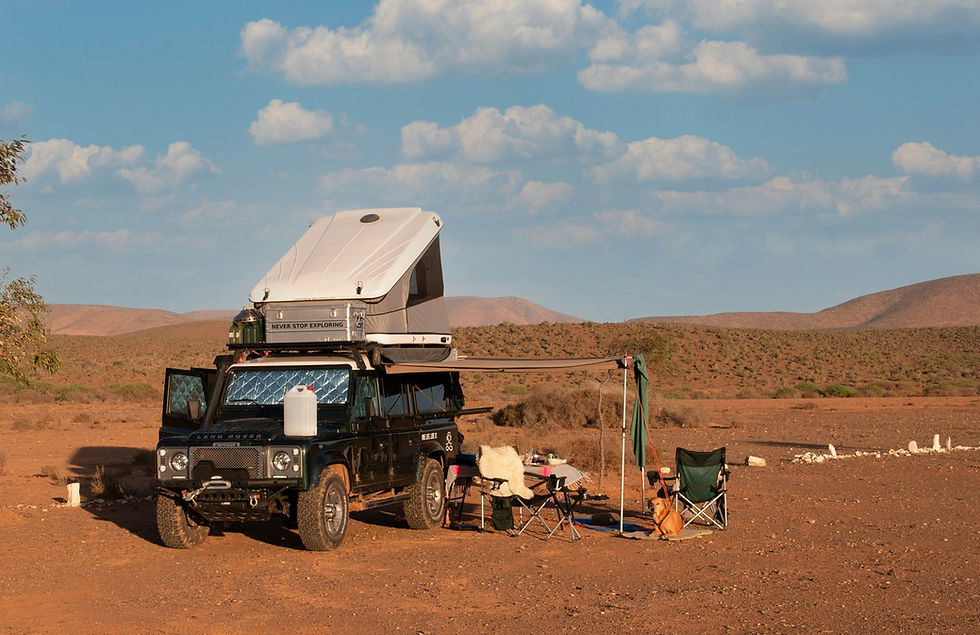
For something completely different, you might be looking at 4x4 all-terrain campers for ranging further afield. 4x4 cars like the Land Rover Discovery and Russian-made Lada Niva are fairly often converted for camping. These are conversions generally built around roof tents and fold-out awnings, and can be great fun for venturing off the beaten track.
Slightly larger than these, the Mitsubishi Delica and Soviet UAZ-452 4x4 minibuses can be found as quirky, compact campervans. They’re excellent fun to drive and surprisingly spacious on the inside.
How Much to Rent a Campervan?
The price you’ll pay for your road trip van rental varies based on the above features and the rental service. Generally, you can expect to pay between £50 and £150 per night. However, this price can rise above £200 a night for luxury or specific base vehicles (like the classic Volkswagen campervans). Conversely, good deals for less than £50 can often be found in the off-season. Furthermore some owners and rental companies offer discounts for longer rentals.
Insurance is usually covered by the vehicle owner on peer-to-peer rental sites, although a fee may be required in the UK where additional drivers must be added to the owner’s insurance policy. A basic insurance policy is generally included by campervan rental companies. Many offer a more comprehensive policy for an extra fee which includes things like a smaller excess, tyre and window insurance, vehicle replacement, and multiple drivers.
You’ll need to thoroughly check the list of what’s included with your desired rental, as you’ll need to bring any amenities or extras not included yourself. For example, many owners won’t include bedding, towels, or outdoor chairs. However, some rentals offer packs of such amenities as a paid optional extra. Further, most rentals specify a maximum daily mileage, averaged over your whole trip. Again, you can often choose to pay extra for an increased mileage limit.
Where to Rent a Campervan? The Best RV Rentals Compared
There are many options for finding campervans to rent, and these usually fall into the category of either peer-to-peer (P2P) rentals or rental companies. P2P platforms allow you to rent a campervan from an individual owner. Rental companies are larger outfits which operate fleets of their own campervans. We’ve highlighted one of each of these options below.
Outdoorsy
Outdoorsy is a worldwide, P2P campervan renting service. The interface will be familiar to AirBnB users: start by entering your desired pickup location, and browse the available rentals hosted by individual owners. The wide range of filters helps you narrow down your search. You can filter by size, amenities, vehicle type and internal arrangement, budget, and a lot more. Outdoorsy provides 24/7 roadside assistance for all the rentals on their site, and the insurance is handled between the renter and the owner.
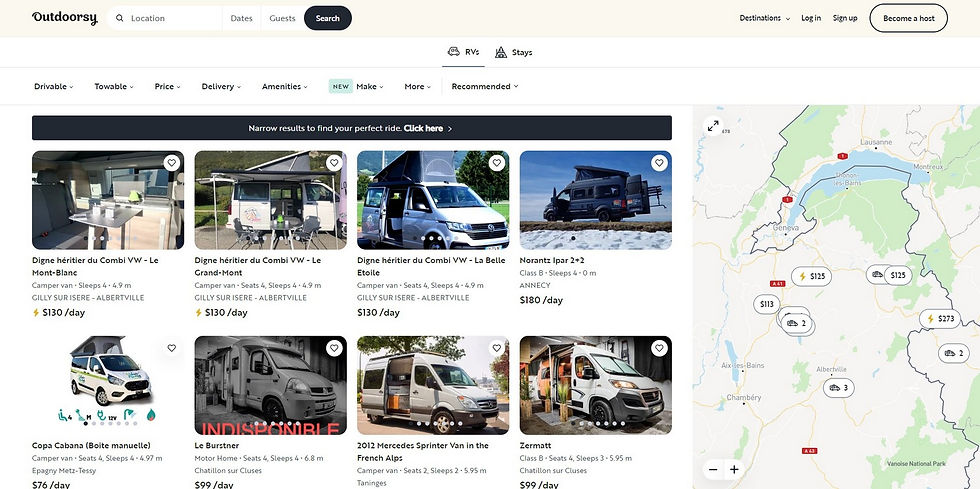
Owners may include optional extras to further customise your holiday, such as bedding, camping chairs, kiddie seats, and WiFi kits. Outdoorsy’s selection of campervans is as varied as the imaginations of the owners who put their beloved campers up on the site. This results in a truly diverse range of styles and setups, including quirky vintage vehicles, 4x4 oddities, cosy hippie vans, and everything in between.
Indiecampers
Indiecampers is a worldwide rental company with a fleet of vans to rent for camping, converted and managed in-house. They offer the same method of search and filtering as Outdoorsy above, plus seasonal deals and special offers. Indiecampers simplify things by including all insurance, cleaning, and preparation fees in their rental prices. Further, custom pick-up and drop-off locations are a standard choice for every rental, allowing you more flexibility with your trip.
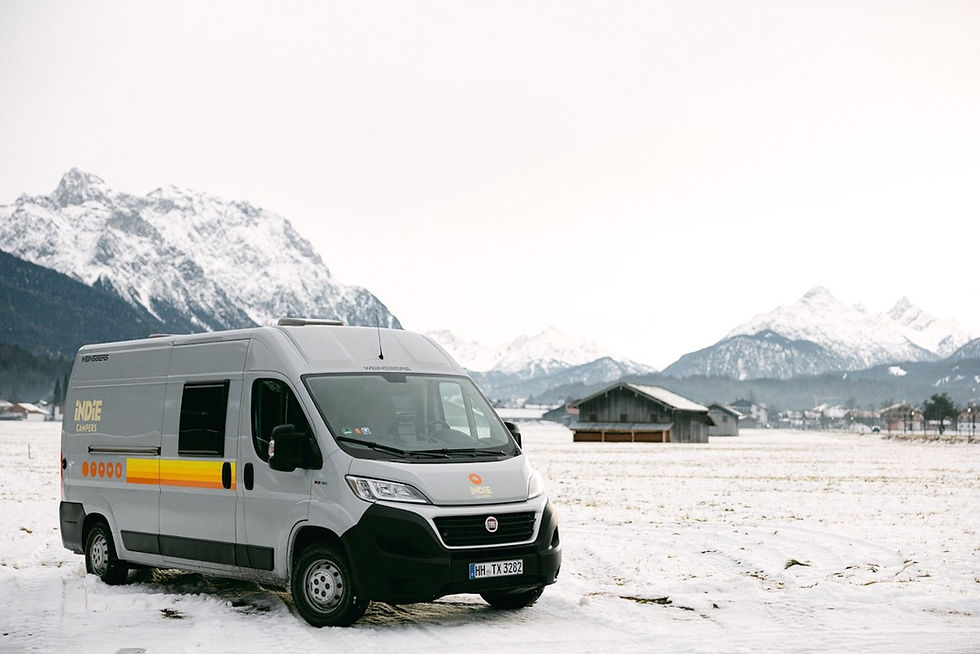
Every Indiecampers rental includes optional extras similar to those provided by some owners on Outdoorsy, packaged conveniently into kits for price savings. You may find less variety in campervan styles on Indiecampers, but they provide a more bespoke experience that might be smoother than renting from an individual.
How to Rent a Campervan – A Step-by-Step Guide
Establish a concrete idea of your destination, type of trip, and budget. Knowing this will help you use the information above to decide on your requirements for a rental campervan.
Use sites like the ones discussed above to search based on location and narrow down your search based on your requirements.
Having chosen your vehicle, make sure you understand the rental agreement. Note the maximum daily mileage and the conditions for return of the vehicle. Make sure you’re clear on insurance and additional drivers, as well as the cancellation policy. Finally, if you’re a smoker or considering bringing a pet along, make sure you know whether these things are allowed.
Consider your add-ons. It’s important to understand what the vehicle comes with and what it doesn’t. Then, decide what to pay for as optional extras, and what to bring along yourself.
Finalise your booking, making sure you understand the security deposit policy and the drop-off date and location.
Pick up your vehicle. Carefully examine the state it’s in, checking the following:
Tyres
Lights (front, back, and brake)
Warning lights on the dashboard
Windscreen wiper fluid
Handbrake
Location of spare tyre and breakdown kit
Next, take photos of any existing damage, as well as the mileage and fuel level displayed on the dash. Check whether the clean water tank is full and the grey water tank is empty, and check the charge status of the battery. Finally, ask the owner to show you how the electrical system works, along with any additional systems like awnings, pop-top roofs, skylights etc.
7. Enjoy your trip! Driving safely, and pay attention to the mileage limit.
Return the vehicle on time, filling the fuel tank if required, and taking a photo of the mileage before handing it back.
Top Tips for a Smooth Campervan Rental Experience
What Do You Need to Rent a Campervan?
A valid driver’s licence is a basic minimum requirement for renting a campervan. Further, Outdoorsy has a minimum age requirement of 25 by default, though owners may specify a higher or lower minimum age. Younger renters may be able to pay an additional fee towards the insurance. Indiecampers’ minimum age is 21 across all their rentals.
Where to Park: Free Camping Spots vs. Campgrounds
The question of where to park is central to the van life. ‘Wild’ camping spots, outside of campsites, are attractive for many reasons but come with their own headaches. Campsites are convenient and secure, but can be expensive and lack the adventurous feel of wild camping. Which style you choose will depend on a number of factors.
Free Camping Spots
The main issue with wild camping spots is legality. In densely populated Europe and the UK, authorities are cracking down on free motorhome park-ups. In populated, popular, and easy to access areas, you will find that many choice spots will be overlooked by signs banning sleeping in vehicles overnight. Pay attention to these restrictions to avoid getting in trouble, and move on. In this part of the world, you can still find postcard perfect wild camping spots. However, it will take prior research using satellite maps, and some trial and error.

Besides these restrictions, wild camping in your van may not be for everyone. There are generally no amenities in such spots, making this choice more difficult for those staying in a less equipped motorhome. Further, parking in a public space involves the risk of being approached by the police or passers-by.
Despite this, wild camping in a van still appeals to many. The independence, freedom, and solitude adds an element of true adventure not found otherwise. You can find yourself in some truly breathtaking spots, where you would only normally be able to sleep in a tent. In a van, however, you can wake up in a full-sized, comfortable bed, and cook breakfast whilst admiring a view that’s entirely your own. Restrictive campsite rules don’t apply, and other campers you meet are likely to be of a similar mindset. Plus, of course, wild camping is free.
Campgrounds
On the other hand, campsites aren’t free and offer a more limited choice of locations. They generally won’t be situated in prime beauty spots, and those that are are likely to be more expensive. Further, the sense of adventure is much more subdued, as you’re likely to be in a tidy, managed, and enclosed space surrounded by other people. The populated nature of a campsite necessitates rules on noise, how much space you take up, and sometimes also the banning of dogs or children.
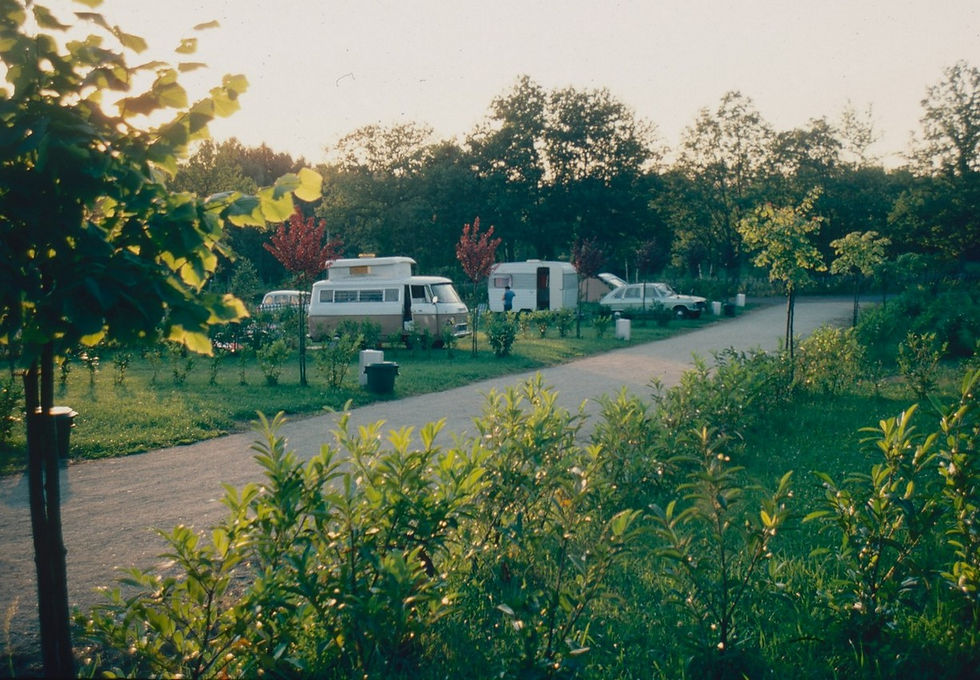
However, campsites have their own draw. Choosing to stay in a campsite is a simple, convenient choice, and by no means a bad one. They’re safe and secure, and there’s no question about whether you’re allowed to be there. Besides this, it’s the amenities offered that give campsites their reason to exist, such as toilets, washing-up areas, and showers. Indoor kitchens and communal spaces can be a real comfort, incorporating electrical sockets and free Wi-Fi. Further, most campsites offer shore hook-ups, allowing you to plug your motorhome into the mains. All these amenities are a real boon for any campervan that isn’t fully equipped for living off-grid.
Considerations for a Campervan Road Trip in Summer
Despite being secure in your home on wheels, campervan living changes drastically with the seasons. In summer, heat will be your main concern. Air-con may feel like a necessity, meaning you’ll need to pay attention to your leisure battery if you’re not plugged into a shore hook-up. Without air-con, ventilation is key. Roof fans and even portable desktop fans make a huge difference, keeping air moving through your living space. Orienting your van with the wind and cracking windows to establish a draught is a handy skill.

An awning keeps sun from shining into the van and heating up the air, an effect also achieved by parking in the shade. With heat being such a factor, you’ll need to make sure you’ve got a way of keeping perishable foods cool. Finally, heat and open windows bring bugs into the equation. Think about packing citronella candles and plug-in repellents.
On the other hand, living in a van in summer can be wonderful. You can happily spend most of your time outside, and the long, lazy evenings are idyllic. You can comfortably shower outside, wet clothes dry quickly, and solar charging is rarely a concern.
Considerations for a Campervan Road Trip in Winter and the Off-Season
For those setting out in winter or the off-season, a different set of considerations apply. You’ll be spending more time inside, which can feel cramped and restrictive. Along with the shorter days, this means that you’ll be using more power for lighting and appliances, making battery levels a concern. Adding to this problem is the fact that solar panels get much less sun, and may need clearing of snow.

In real winter conditions, winter driving comes into play. You’ll need winter tyres and possibly chains, plus a means of freeing your vehicle if it gets stuck. Make sure you have a way of clearing your windscreen of frost and ice.
Besides all this, winter and off-season van camping is appealing in its own way. For one, you’ll generally pay far less to stay in campsites, which will also be much quieter. Getting cosy in a warm campervan on a winter night, especially with snow outside, is a real pleasure experienced by very few. For those who love the quiet beauty and severity of winter, experiencing the season in a van is a proper adventure.
Vanlife Etiquette: Being a Considerate Traveller
As mentioned previously, van life is growing in popularity as a holiday and lifestyle choice, meaning there are more campervans on the road than ever before. Sadly, this means that restrictions are becoming more common, thanks to overcrowding and the actions of inconsiderate campers. It’s important, therefore, that you think about how to best represent yourselves and others choosing to stay in campervans. This way, we limit negative perceptions and slow the tightening of restrictions.
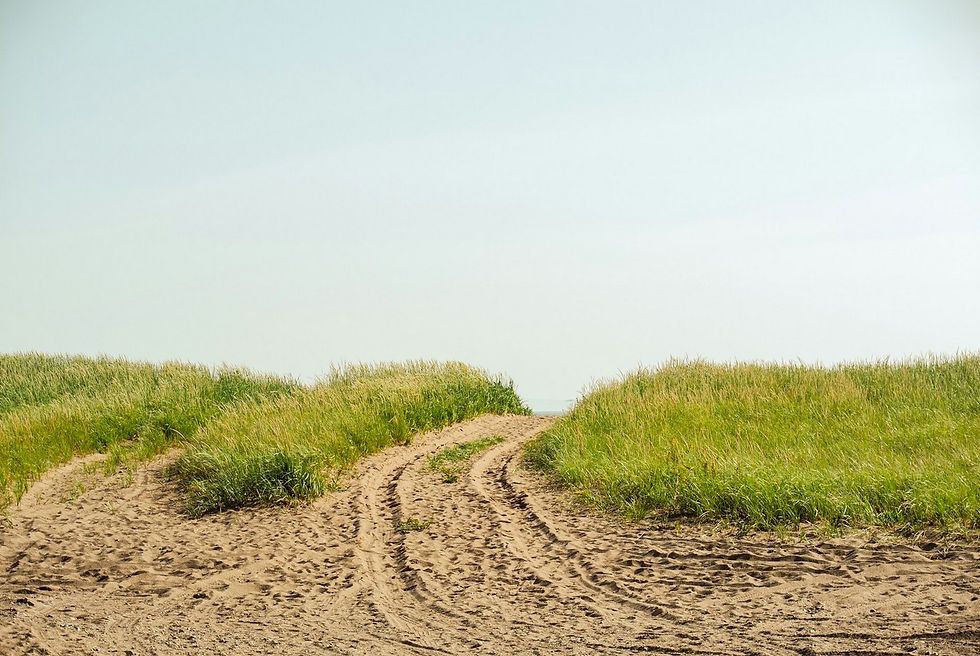
Leave No Trace
A basic adherence to the ‘leave no trace’ ideal is the best way to think about living in a campervan. Don’t leave any litter behind, don’t drain harmful or foul-smelling waste onto the ground, and don’t light fires. If your van doesn’t have an internal toilet and you’re obliged to relieve yourself outside, be mindful. Avoid leaving human waste out in the open or anywhere it’s likely to be stumbled upon. Dig catholes and bury your waste, and pack out or burn toilet paper. If none of this is practical, you’ll have to bag everything up and take it away with you.
Obey Parking Restrictions
Parking restrictions are frustrating, but it’s important to obey the ones currently in place. Otherwise, such restrictions are likely to be more widely implemented, more severely punished, and more strict. Be considerate of your impact on those around you — be aware of noise and lights. If you find a good spot, respect the space of anyone already there, and keep the location to yourself.
Final Thoughts
There’s a lot to consider when renting a campervan for your next trip, especially if it’s your first time. Nevertheless, it’s a fairly simple and straightforward process, similar to booking a more traditional holiday. With a bit of planning, it’s easy to make a trip a success.
Now that you’re ready to start exploring campervans to rent for your next holiday, check out Outdoorsy and Indiecampers and see what you can find.
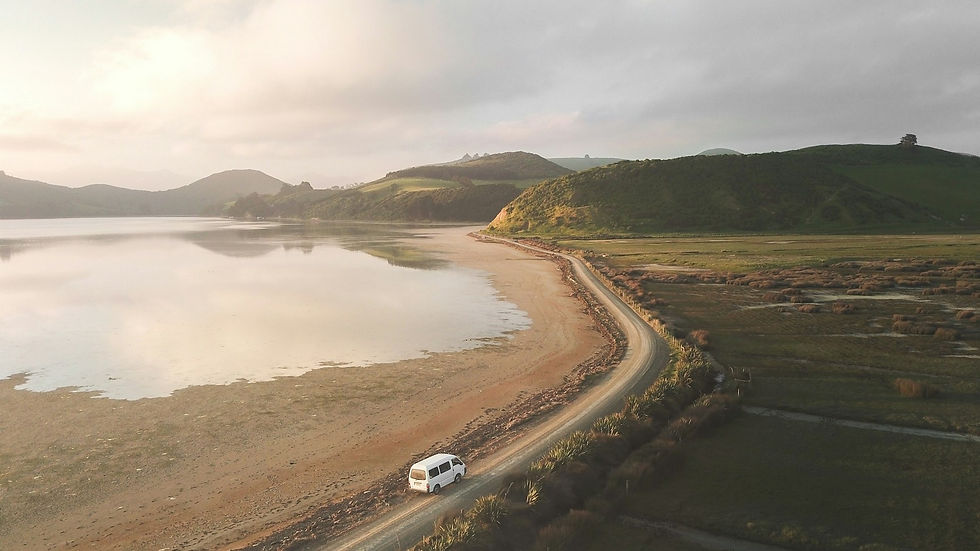
Don't forget to subscribe to The Van Conversion Newsletter for everything you need to get started with your own van conversion (we'll send you a free wiring diagram when you join).
If you're looking for some guidance with your van conversion, you might be interested in our book Roaming Home, or in our online course The Van Conversion Mastery Course. You'll learn directly from our founder Shane how to convert a van into your dream home - no prior experience needed. Shane also offers one-to-one consultations, where he'll help you with any aspect of your build in a face-to-face video call. All consultations come with a free copy of Roaming Home and our Diagram Pack.
Finally, our Van Conversion Ultimate Guide lays out the whole van conversion process in easy-to-follow sections with tools, materials, and step-by-step instructions. It's the perfect companion for your van build.
Until next time.







